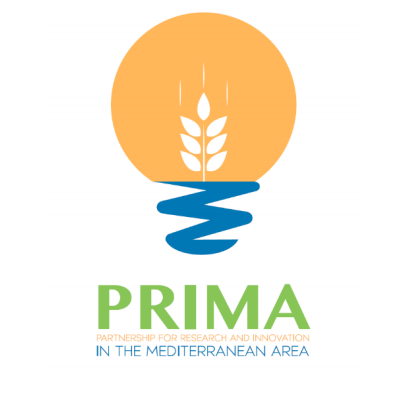
PRIMA - Section 1 – Farming Systems 2018
Deadline: Apr 17, 2018
CALL EXPIRED
CALL EXPIRED
Agriculture
Agrifood
Food Safety
Young Farmers
Social Farming
Eco-Innovation
Environment
Sustainable Development
Environmental protection
Euro-Mediterranean Relations
THEMATIC AREA: Farming systems
TOPIC: Improving the sustainability of Mediterranean agro-ecosystems
TYPE OF ACTION: RIA Research and Innovation action
TOTAL INDICATIVE AMOUNT ALLOCATED TO THIS CALL: EUR 6.1 million
OPENING DATE: 6 February 2018
DEADLINE;
Stage 1 Pre-proposals - 17th April, 2018 (17:00h CET)
Stage 2 Full proposals - 15th September, 2018 (17:00h CET)
STATUS: Open
Challenge
In the last decades a substantial proportion of agriculture in the Mediterranean area has been modernized and intensified. However, yield increases are still insufficient to face the ever-growing food demand. Furthermore, unsustainable intensification of practices has often led to pollution, overexploitation of natural areas and resources, loss of fertility of agricultural land, soil erosion and salinization, runoff, and in some cases desertification.
The objective of this call for proposals is to develop Mediterranean innovative cropping and livestock systems including inland aquaculture, able to cope with limited resources and environmental constrains while enhancing food production stability over time and ensuring a production of high quality agricultural outputs that will allow increase in farmers’ income and preserve agro-ecosystems integrity and services.
Scope
This objective should be met by developing innovations at the level of the cropping, livestock or farming systems, taking into consideration the social, economic and environmental aspects. The projects should target the Mediterranean crops, animals and the Mediterranean farming systems and the specificities of their natural Mediterranean environment.
Design of new production systems should allow adaptation of the Mediterranean farming systems to climate change, reduction and optimization of use of natural resources in particular water and/or potentially polluting inputs (e.g. pesticides, organic and mineral fertilizers, manure and antibiotics), management of soil conservation and/or decrease in erosion and soil salinity.
Research projects are expected in the following thematic areas: better linkage between livestock (including freshwater aquaculture, as a component of proposals for agro-ecosystem projects) and crop production; a range of different systems should be included (e.g. organic farming, agroecology, agroforestry, ...) as well as their resilience to climate change impacts taken into account; valorizing existing biodiversity through sustainable use of underexploited and new species, breeds or varieties of interest in farming systems; development of production of legumes or use of other local Mediterranean varieties/ species and its insertion in cereal soles, crops rotations and crops association. The projects could include the use of innovative technologies, such as digital technologies, smart space data and related data and technologies.
The inclusion of end-users (farmers’ organisations, extension services, farmers, food industry, NGOs and consumer associations) in the research consortiums is encouraged to speed up innovation. Projects should consider the involvement of the different type actors as part of the Agricultural and Knowledge Innovation System and the multi-actor approach1.
1 The multi-actor approach aims to make innovation more demand-driven, and therefore should ensure genuine and sufficient involvement of various actors (end-users such as farmers/farmers' groups, foresters/foresters'
groups, fishers/fisher's groups, advisors, businesses, etc.) all along the project: from the participation in the planning of work and experiments, to implementation, the dissemination of results and a possible demonstration phase. A multi-actor project proposal needs to demonstrate: how the project proposal's objectives and planning are targeting needs/problems and opportunities of end-users and how it complements existing research and best practices
Expected Impacts
Projects funded under this call for proposals must target Mediterranean farming systems taking into consideration the specificities of the Mediterranean climate and ecosystems. Project could deal with crops and/or animals systems. Projects should contribute to develop and propose new sustainable production systems by reducing negative impacts on the environment while increasing yields. The solutions proposed should increase the viability of farms and the incomes of workers thereby social aspects and employment should be considered.
More specifically, the impacts expected from the projects should concern one of the point listed below (potentially several):
-
Development of low-input systems with high productivity and low environmental impact
-
A more appropriate use of lands by diversified ago-ecosystems, integration of ecosystems services and mix cropping-livestock activities is expected
-
Integration of ecological, agronomical and socio-economic knowledge to design and assess efficient productive systems based on agroecological concepts and to address the difficulties of transition of technical practices
-
Promote and develop a sustainable use of underexploited and/or new species and Improved local
species / breeds / products and farming systems best suited to Mediterranean conditions
Supporting information for the Section 1 Call for Proposals, Topic 2: “Sustainable Ecosystems”
Type of action
Research & Innovation Action (RIA)
Total indicative amount allocated to this call
€ 6,1 million
Funding level
According to Horizon 2020 rules Funding rate: 100%
Technology Readiness levels (TRL)
3 to 5
Expected number of grants
Up to 3 (projects up to € 2,033 million each – indicative amount)
Eligibility conditions for participation
Please refer to the Guidelines for Applicants – Section 1 2018
Submission and evaluation procedure
Two-stage application procedure. For the first stage, a short proposal (maximum 10 pages) must be submitted by the first deadline. Successful applicants in the first stage will be invited to submit a full proposal (maximum 70 pages) for the second stage. A timeline for the submission and evaluation of applications can be found in the Guidelines for Applicants – Section 1 2018.
Evaluation rules
The award criteria, scoring, thresholds and weightings for RIAs are listed in the Guidelines for Applicants – Section 1 2018
Grant agreement
PRIMA grant agreement (multi-beneficiary), based on Horizon 2020 Model Grant Agreement.
Consortium agreement
Participants in projects resulting from this Call for Proposals will be required to conclude a consortium agreement prior to the conclusion of the PRIMA grant agreement
Public link: Only for registered users
 PRIMA
PRIMA


Please Log In to See This Section